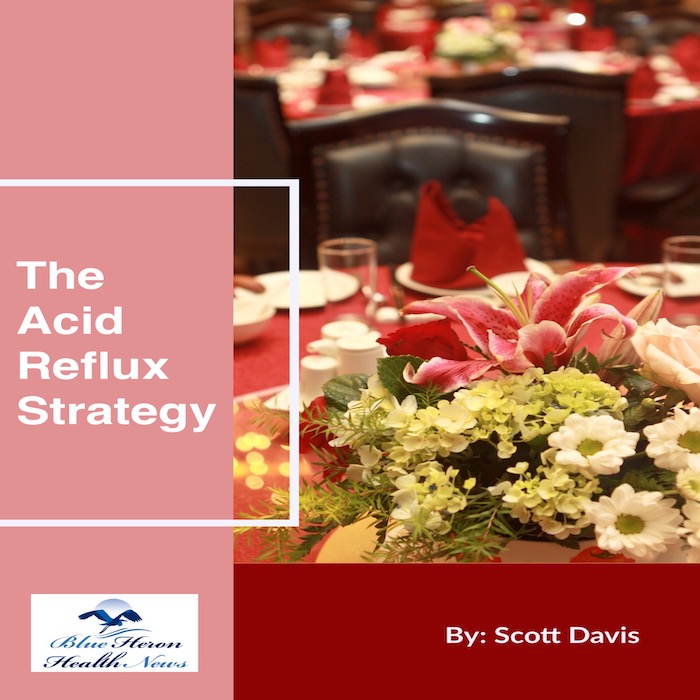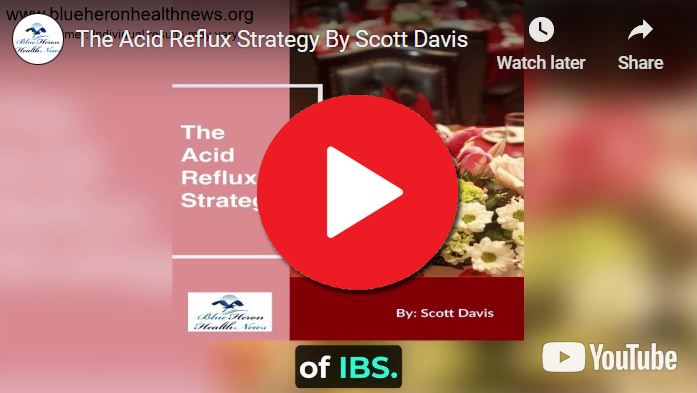
Acid Reflux Strategy™ By Scott Davis According to this eBook, you can start removing the symptoms of acid reflux and other similar problems just by making some changes in your diet, levels of stress, and lifestyle. It will guide you on how to change from the combination of food items to the sleep positions to relieve your problems. It also includes a list of food items you should focus on while shopping for it to find a natural treatment for your symptoms.
What are the most commonly prescribed medications for acid reflux in the USA?
Introduction
Acid reflux, also known as gastroesophageal reflux disease (GERD), is a common condition affecting millions of Americans. It occurs when stomach acid frequently flows back into the esophagus, causing irritation and discomfort. Managing acid reflux often requires a combination of lifestyle changes and medications. This detailed analysis explores the most commonly prescribed medications for acid reflux in the United States, providing insights into their mechanisms, uses, side effects, and effectiveness.
Proton Pump Inhibitors (PPIs)
Proton Pump Inhibitors (PPIs) are among the most commonly prescribed medications for acid reflux. They work by blocking the enzyme in the wall of the stomach that produces acid, thereby reducing the amount of acid in the stomach. This helps to heal the esophagus and prevent further damage.
Common PPIs
- Omeprazole (Prilosec)
- Esomeprazole (Nexium)
- Lansoprazole (Prevacid)
- Pantoprazole (Protonix)
- Rabeprazole (AcipHex)
- Dexlansoprazole (Dexilant)
Mechanism of Action
PPIs block the hydrogen-potassium ATPase enzyme system (the proton pump) of the gastric parietal cells. This inhibition reduces gastric acid secretion, providing relief from symptoms and allowing the esophagus to heal.
Uses
PPIs are primarily used to treat:
- GERD
- Erosive esophagitis
- Zollinger-Ellison syndrome
- Peptic ulcers
Side Effects
Common side effects of PPIs include:
- Headache
- Diarrhea
- Nausea
- Abdominal pain
- Fatigue
- Dizziness Long-term use of PPIs has been associated with risks such as:
- Vitamin B12 deficiency
- Magnesium deficiency
- Increased risk of bone fractures
- Increased risk of kidney disease
Effectiveness
PPIs are highly effective in reducing acid production and providing relief from acid reflux symptoms. They are particularly effective for healing erosive esophagitis and preventing complications associated with GERD.
H2 Receptor Antagonists (H2 Blockers)
H2 Receptor Antagonists, also known as H2 Blockers, reduce the amount of acid produced by the cells in the lining of the stomach by blocking histamine, a chemical that stimulates acid production.
Common H2 Blockers
- Ranitidine (Zantac) (Note: Ranitidine has been withdrawn from many markets due to concerns about contaminants)
- Famotidine (Pepcid)
- Cimetidine (Tagamet)
- Nizatidine (Axid)
Mechanism of Action
H2 Blockers work by blocking the H2 receptors on the cells in the stomach lining, which are responsible for signaling the production of stomach acid. By blocking these receptors, H2 Blockers reduce the amount of acid the stomach produces.
Uses
H2 Blockers are used to treat:
- GERD
- Peptic ulcers
- Zollinger-Ellison syndrome
- Conditions that cause excessive stomach acid production
Side Effects
Common side effects of H2 Blockers include:
- Headache
- Constipation or diarrhea
- Dizziness
- Fatigue
- Rash Rare but serious side effects include:
- Confusion (more common in the elderly)
- Cardiac arrhythmias (particularly with Cimetidine)
Effectiveness
H2 Blockers are effective for mild to moderate cases of acid reflux and are often used for short-term treatment. They are less potent than PPIs but provide quicker relief of symptoms.
Antacids
Antacids are over-the-counter medications that neutralize stomach acid. They provide quick relief for mild acid reflux symptoms but do not promote healing of the esophagus or treat chronic conditions.
Common Antacids
- Calcium carbonate (Tums, Rolaids)
- Magnesium hydroxide (Milk of Magnesia)
- Aluminum hydroxide (Maalox, Mylanta)
- Sodium bicarbonate (Alka-Seltzer)
Mechanism of Action
Antacids work by neutralizing the stomach acid that is already present in the stomach. This neutralization process reduces the acidity in the stomach and esophagus, providing relief from heartburn and indigestion.
Uses
Antacids are used for:
- Immediate relief of heartburn
- Relief of indigestion
- Temporary relief of acid reflux symptoms
Side Effects
Common side effects of antacids include:
- Constipation (aluminum-containing antacids)
- Diarrhea (magnesium-containing antacids)
- Kidney stones (calcium-containing antacids)
- Alkalosis (sodium bicarbonate)
Effectiveness
Antacids are effective for quick, short-term relief of mild acid reflux symptoms. They do not provide long-term relief or healing of the esophagus.
Prokinetics
Prokinetics are medications that help strengthen the lower esophageal sphincter and make the stomach empty faster. They are less commonly prescribed than PPIs and H2 Blockers but can be useful for individuals with specific types of acid reflux.
Common Prokinetics
- Metoclopramide (Reglan)
- Bethanechol (Urecholine)
Mechanism of Action
Prokinetics work by increasing the movement of the stomach and intestines, which helps reduce the frequency of acid reflux by promoting faster gastric emptying and strengthening the LES.
Uses
Prokinetics are used to treat:
- GERD (particularly in individuals with delayed gastric emptying)
- Gastroparesis
- Conditions causing slow gastric motility
Side Effects
Common side effects of prokinetics include:
- Drowsiness
- Fatigue
- Diarrhea
- Restlessness
- Anxiety Serious side effects include:
- Tardive dyskinesia (involuntary movements, particularly with long-term use of metoclopramide)
- Neuroleptic malignant syndrome
Effectiveness
Prokinetics can be effective for individuals with GERD who have issues with delayed gastric emptying. They are not typically first-line treatments due to their side effect profiles.
Alginates
Alginates are a type of medication that creates a physical barrier to prevent acid from flowing back into the esophagus. They are often used in combination with other acid reflux treatments.
Common Alginates
- Gaviscon
Mechanism of Action
Alginates work by forming a gel-like layer that floats on top of the stomach contents. This layer acts as a barrier, preventing acid from refluxing into the esophagus.
Uses
Alginates are used for:
- Relief of heartburn and acid reflux symptoms
- Providing a physical barrier to protect the esophagus
Side Effects
Alginates are generally well-tolerated, with few side effects. Some individuals may experience mild side effects such as:
- Bloating
- Flatulence
Effectiveness
Alginates are effective for providing quick relief of symptoms and can be particularly useful for nighttime acid reflux. They are often used in conjunction with PPIs or H2 Blockers for comprehensive management of acid reflux.
Sucralfate
Sucralfate is a medication that coats the esophagus and stomach, providing a protective barrier against stomach acid. It is used to treat and prevent ulcers and can be helpful for individuals with acid reflux.
Common Brand Names
- Carafate
Mechanism of Action
Sucralfate works by adhering to ulcer sites and forming a protective barrier. This barrier protects the esophagus and stomach lining from the harmful effects of stomach acid, allowing healing to occur.
Uses
Sucralfate is used to treat:
- Gastric ulcers
- Duodenal ulcers
- GERD (particularly in cases of esophagitis)
Side Effects
Common side effects of sucralfate include:
- Constipation
- Dry mouth
- Dizziness
- Nausea
Effectiveness
Sucralfate is effective in promoting healing of the esophagus and stomach lining. It is often used in conjunction with other medications for comprehensive management of acid reflux and esophagitis.
Conclusion
The management of acid reflux in the United States often involves a combination of medications, each with its specific mechanism of action, uses, side effects, and effectiveness. Proton Pump Inhibitors (PPIs), H2 Receptor Antagonists (H2 Blockers), antacids, prokinetics, alginates, and sucralfate are among the most commonly prescribed medications for acid reflux. Understanding the role of these medications can help individuals and healthcare providers develop effective treatment plans to manage and alleviate the symptoms of acid reflux, improving the quality of life for those affected by this common condition.
Acid Reflux Strategy™ By Scott Davis According to this eBook, you can start removing the symptoms of acid reflux and other similar problems just by making some changes in your diet, levels of stress, and lifestyle. It will guide you on how to change from the combination of food items to the sleep positions to relieve your problems. It also includes a list of food items you should focus on while shopping for it to find a natural treatment for your symptoms.
